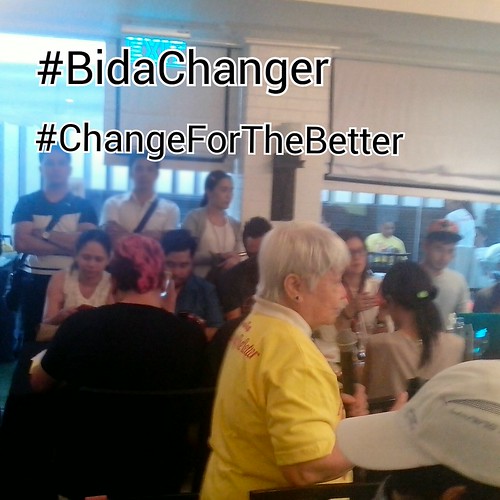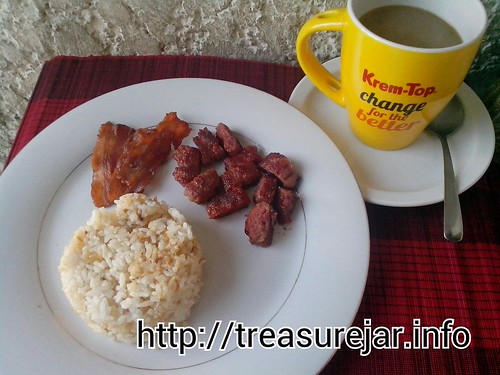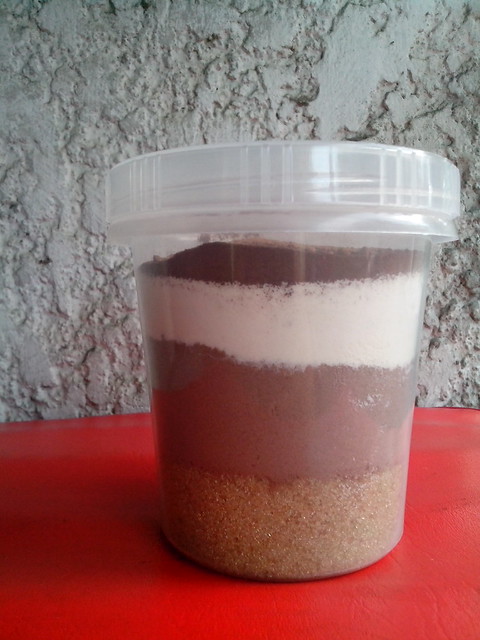Change for the Better Campaign by Krem-Top focuses on 5 key Filipino values to help us Filipinos give focus on doing a reflection about how we lived in 2014 and how we will be stronger and better for 2015 as we start to plan and start things right.
The campaign Change for the Better started in 2012 as a call to action to commit and sustain change that will help people become better throughout the year and not just when the inspiration to do so is stronger.
Going beyond making one’s self better was the call for a more nationalistic mission, to bring more fire to the Filipino spirit that has been through a lot of challenges in the recent years.

Krem Top’s Change for the Better campaign reminds us of the small distinctly Filipino traits that when rekindled can make our country better. Small changes can create a huge impact when done together by a community wanting to practice innate Filipino traits that will make their lives, and the lives of fellow Filipinos better,
For 2015, Krem-Top’s Change for the Better campaign zeroed in on Filipino values that remind us of our identity which in turn can help build a stronger nation.
Dr. Mina Ramirez of the Asian Social Institute is a renowned phenomenological sociologist who helped identify the FIVE CORE VALUES that define the Filipino people. These core values make the Filipinos stand out from the rest of the world. These five core values are essential in our quest to build a stronger nation.

Based on Dr. Ramirez’s study “The Filipino Worldview and Values” and her insights from decades of practice as a phenomenological sociologist, here are the Five Core Filipino Values based on the Basic Aspirations of a Filipino:
Mapagpasalamat
This is based on Filipinos’ aspiration for “Pamumuhay” (Life) and “Pananalig sa Diyos at Kapwa” (Faith in God and people). Filipinos know how to enjoy life. We have many holidays, feasts, occasions, and reunions. Filipinos are cheerful and naturally sociable. We love to connect to people. We are a happy race. We wear smiles on our faces even in depressing situations. This is because we always look at the bright side of life. We always have a positive outlook because we always find things to be thankful for, even in the smallest things. We would always say “Salamat sa Diyos” (Thank God) whenever good things happen because Filipinos, from whatever religion, would attribute life’s blessings to the Higher Being. We also acknowledge the good deeds of other people towards us and we do our best to return the favor.
Matatag
Being in a country prone to natural disasters, Filipinos have adapted and learned to be strong in times of need and in hard situations life throws at us. We continue to stand up, be firm, and fight because we have our loved ones and life’s aspirations to be strong for. This strength is drawn from our love for our family and to the higher being we believe in. This is based on Filipino’s aspiration for “Kaayusan” (Order). In fact, Filipinos’ common expression is “Ayos Na”. When we are able to get through difficulties, we say “Ayos Na”. We, Filipinos long for “Kaayusan” and we will endure everything and be strong amidst hardships and challenges until we surpass the obstacles.
Masigasig
When Filipinos dream of something, we do everything possible to get it. We do it for our families and loved ones. This is based on Filipinos’ aspiration for “Kasaganaan” (Abundance) and “Ginhawa” (Relief). A Filipino aspires for abundance not for himself but for his family. The Filipino translation for Happy New Year is Masaganang Bagong Taon (Bountiful New Year) because we equate happiness and celebration with abundance. In Bisaya, “Ginhawa” means breath. And the smooth flow of breath is the smooth flow of life which we call “Ginhawa”. “Ginhawa” according to lay theologian Dr. Jose de Mesa is the feeling of well-being in a Filipino. An example would be Overseas Filipino Workers (OFWs) who endure being away from home to give their families a good life – abundance and relief from hardships.
Mapagmalasakit
It is because of our love for the family extended to friends, neighbors and other people that make Filipinos naturally compassionate. This compassion enables us to help other people without asking for anything in return. This is based on Filipinos’ aspiration for “Loob at Damdamin” and “Kapwa” (Other People) as explained in Dr. Mina’s The Filipino Worldview and Values. “Loob” is the seat of Filipinos’ dignity. The personhood of Filipino is manifested in his “kalooban”. Filipinos tune in each other’s “kalooban” by checking on each other’s condition and chatting about each other’s lives. Filipinos reach out to other people. Due to our familistic culture, Filipinos use “kapwa” to refer not just to a stranger but to a relative, a next-door neighbor, a distant relative or a friend. Our “Mapagmalasakit” trait makes it easy for us to champion the Bayanihan spirit – to unite and help each other during calamities and celebrate together during special occasions.
Magalang
The use of po, opo, and pagmamano (kissing of the hand) are distinct Filipino ways of respect. We say these words and use this gesture to show our respect and love for the elderly. The Filipinos’ respect is not just limited to the elderly but also to other people’s properties, emotions, and ideas. We are polite people. Our language itself is also respectful because it does not have any gender bias. Examples would be the words kapatid (brother / sister) or asawa (husband / wife) or biyenan (father-in-law / mother-in-law) or anak (son / daughter) which do not manifest differences in gender. These words are uniquely Filipino definitely respectful of the sexes. Our respect for other individuals is embedded in our culture and in our language. This is based on our aspiration for “Lakas ng Loob” or “Kagandahang Loob”. Malakas and Maganda, Filipinos’ original creation story brings dignity to both the Filipino and Filipina. Both the man and the woman sprang from the bamboo. The man bowed to the woman. They held hands and went off together. Dr. Ramirez said, “This is a very non-sexist indigenous version of the creation story.”
Dr. Mina Ramirez explained, “If you want to get to know the Filipino, learn the language. Most of our values are deeply rooted in how we express ourselves. The Five Core Filipino Values based on the Basic Aspirations of a Filipino are in Filipino language because there are no direct translations of these traits. The words are unique to us. Understanding these traits would mean dissecting the soul of a Filipino.”
“Filipinos may be hard pressed at times, but in general, we are rich. We are rich in natural resources; we are rich in our people. If we can just get to know more ourselves clearly and use our values to our advantage, we will become a better nation. It’s time to change for the better,” said Dr. Ramirez.
Blen Fernando, Alaska Milk Corporation’s VP for Marketing and also the campaign leader for Krem-Top Change for the Better is optimistic that through this project, there will be awareness about the need to keep and further enrich these five Filipino Core Values. “We hope that Krem-Top’s Change for the Better campaign will inspire us to be the better version of ourselves for the benefit of our families and our country. The public can count on our continued support to champion the Filipino spirit that will help make us a better and stronger nation.”
Photos here.
~~~~~~~~~~~~~~~~~~~~~~~~~~~~~~~~~~~~~
For more information about Krem-Top Change for the Better campaign, visit www.facebook.com/AlaskaKremTop or follow @kremtopPH on Twitter.
***
About Krem-Top
Krem-Top is a product of Alaska Milk Corporation, a leading company in consumer goods and was launched nationwide in 2012. It is a non-dairy coffee creamer that gives all the rich taste which best complements your coffee. Relish the creaminess and savour the wonderful aroma which will make your coffee experience more enjoyable.
Tags: Change for the Better Campaign, Dr. Mina Ramirez, Filipino Core Values, Krem-Top Change for the Better Campaign, Krem-Top Change for the Better Campaign Filipino Core Values, Krem=Top campaign, Magalang, Mapagmalasakit, Mapagpasalamat, Masigasig, Matatag, www.facebook.com/AlaskaKremTop



